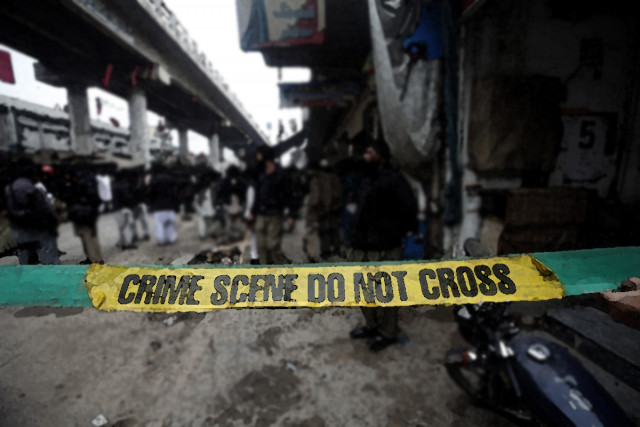Attacks in Shia areas of Baghdad kill 12: officials
Violence has spiked ahead of the anniversary of the 2003 US-led invasion, with 76 people killed in the past week.

File photo of a blast crime scene. PHOTO: REUTERS/ FILE
At least seven car bombs and two assassinations across the Iraqi capital also left at least 56 people wounded, with officials warning the toll could rise.
All the attacks bar one struck in Shia neighbourhoods of Baghdad, concentrated in the northeast of the capital.
Security forces stepped up searches at checkpoints after the attack and closed off key roads, worsening the capital's morning gridlock, an AFP reporter said.
No group immediately claimed responsibility for the violence, but militants often target Shia civilians and government targets in a bid to destabilise the country.
Violence has spiked ahead of the anniversary of the 2003 US-led invasion, with 76 people killed in the past week, according to an AFP tally based on reports from security and medical officials.
Britain-based Iraq Body Count has said that more than 112,000 civilians have been killed since the 2003 invasion, while a study published in The Lancet put the figure at 116,000 from 2003 up to December 2011, when US forces pulled out.
Since the withdrawal, Iraq's military and police are consistently described by Iraqi and American officials as capable of maintaining internal security, but not yet fully able to protect the country's borders, airspace and maritime territory.
Attacks remain common, however, albeit at markedly lower levels than during the peak of Iraq's sectarian war.



















COMMENTS
Comments are moderated and generally will be posted if they are on-topic and not abusive.
For more information, please see our Comments FAQ